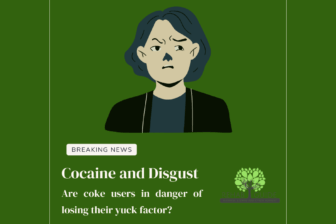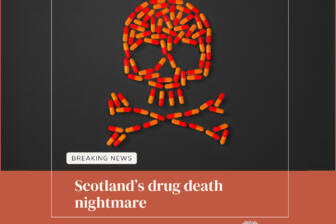What Are Happy Pills? History of Antidepressants
Happy pills explained
What’s the story behind happy pills? Do they really make you happy? Can they cure depression?
If you’re exploring ways to treat depression, you must know how different methods work and what they might do to your brain chemistry. So we’re going to take a look at happy pills, also known as antidepressants, giving you a better idea of what they do and how they work.
Hopefully, you’ll get a better idea of the history and function of this medication to see if it’s something that might help you.
Let’s take a look.
What are Happy Pills?
What are happy pills called, actually?
The term “happy pills” is a colloquial phrase used to describe a medication that helps treat different symptoms of mental illness. For example, in most cases, people say “happy pills” when they’re referring to depression medication.
Some people might use the term as a blanket description of all medications used to treat mental illness. So if you came asking, “What are happy pills used for,” the answer is that they could be used for any number of mental illnesses.
Antidepressants are complicated medications, though, so it’s important to understand the differences between them. Before we look at how they work, let’s explore a little bit about their history.
The History of Antidepressants
Like many medicinal advancements, the first antidepressants were discovered by accident. Researchers were trying to treat symptoms of tuberculosis when they stumbled upon a drug that blocked the MAO enzyme.
It’s believed that blocking this enzyme allows dopamine, norepinephrine, and serotonin receptors to reestablish normal function. This discovery was made in the 1950s and was one of the first pharmaceutical approaches to treating depression.
Moving into the 1970s, scientists discovered an antidepressant that is still widely used today. A class of drugs called selective serotonin reuptake inhibitors (SSRIs) was one of the first branded and distributed antidepressant medications to affect the population in a real way.
It took over a decade for research to come to fruition when Prozac was released in 1988. These medications help serotonin receptor function by preventing a process called reuptake.
Reuptake occurs when a neuron reabsorbs a neurotransmitter after it conducts its impulse. For example, serotonin will return to its original neuron in some cases after it has sent a signal through the neural chain.
When reuptake is prevented, there’s an excess of that class neurotransmitter, contributing to changes in mood.
Serotonin and Mental Illness
Prescriptions of antidepressants in Scotland have risen 70 per cent in the last decade, new figures from Public Health Scotland reveal. In England, there were 20.2 million antidepressant drugs prescribed, a 1% decrease from 20.5 million items in the previous quarter.
This data is an obvious sign that there are many people in need of mental health support.
Serotonin is an important neurotransmitter to target in treating depression because it has so much to do with mood. Serotonin is often equated with happiness and joy, although the function of this neurotransmitter isn’t limited to states of consciousness.
Serotonin deals with appetite, immune regulation, mental function, and a lot more. That said, there seems to be a connection between healthy serotonin levels and the absence of mental illness.
So, by increasing the amount of active serotonin in the system, it’s thought that symptoms of depression might go away. The same is thought about norepinephrine in some cases.
There’s a class of drugs called serotonin-norepinephrine reuptake inhibitors (SNRIs) as well. These are the two most common antidepressant classes to this day. Now that you know a little bit about the history of antidepressants
Do They Really Work?
If you’re currently dealing with depression, you know how dismal it can make you feel. It’s a complex issue with a lot of varying causes, symptoms, and impacts on daily life.
When depression hits for no apparent reason, it might feel as if there’s a distinct chemical imbalance in your brain. How could your mood change so drastically without a cause to attribute the change to?
There’s a genuine chance that a “chemical imbalance could cause some cases of depression.” The difficulty is that the brain is a network of thousands of chemical balances that are shifting in and out of equilibrium all of the time.
Each part of the body is also intimately connected to every other part in some way. So, the idea that depression is a “chemical imbalance” is true, but the nature of that imbalance is an important part of thinking about.
Happy pills drugs work for a lot of people. You’ll find many people who say that antidepressants saved their lives and that they would never be able to function if they didn’t have them.
On the other hand, many people claim that happy pills haven’t worked for them. Some people even say that happy pills make their symptoms of depression worse.
Choosing The Right Medications
You must talk with a doctor or psychiatrist before you choose to start using these medications. They can help you answer questions like “What are happy pills made of,” ensuring that you’re getting the right medication for your situation.
While the benefits of antidepressants can be great, different pills might have unique complications for different people. In addition, different mental illnesses also require unique approaches.
In some cases, you could need a combination of an SSRI and another drug to target different aspects of your mental illness. For example, some people with Obsessive-Compulsive Disorder need to take an SSRI in addition to a drug like Mirtazapine.
These combinations are safe only when you use them under the supervision of a doctor. Another factor in your decision to go with a specific antidepressant should be the side effects associated with that drug.
It tends to take an antidepressant about 3 to 4 weeks before noticeable effects take place. This is the amount of time it takes your brain to adjust to the new chemical situation and start making changes to your mood.
You might feel a strong positive placebo effect, but many people claim that intense side effects of antidepressants mark those first three weeks.
As your brain reconfigures in the presence of the medication, it might do some unusual things. If you’re already experiencing strong symptoms of mental illness, taking on a new medication comes with a slight risk.
That “happy pills side effects” risk is mitigated when you have the insight and support of doctors and mental health professionals. The point is, don’t make any decisions on your happy pill of choice before you talk with the doctor about it first.
Combining Medication with Personal Change
While it would be wonderful if a pill could take on a full load of making us happy, it can’t.
The medication works best when an individual works hard to introduce other methods of improvement. There are many natural ways for our brains and bodies to work together and make us happy.
%22%20transform%3D%22matrix(4%200%200%204%202%202)%22%20fill-opacity%3D%22.5%22%3E%3Cellipse%20rx%3D%221%22%20ry%3D%221%22%20transform%3D%22rotate(-30.8%20311.4%20-408.9)%20scale(39.99869%2069.09736)%22%2F%3E%3Cellipse%20fill%3D%22%23fefefe%22%20rx%3D%221%22%20ry%3D%221%22%20transform%3D%22matrix(-249.24105%2053.88782%20-8.11982%20-37.55567%2090.2%2019.2)%22%2F%3E%3Cellipse%20fill%3D%22%234a4a4a%22%20rx%3D%221%22%20ry%3D%221%22%20transform%3D%22matrix(-18.0968%2034.91227%20-60.49388%20-31.35705%2082%20167.1)%22%2F%3E%3Cellipse%20fill%3D%22%23e6e6e6%22%20cx%3D%22152%22%20cy%3D%2290%22%20rx%3D%2236%22%20ry%3D%2249%22%2F%3E%3Cellipse%20rx%3D%221%22%20ry%3D%221%22%20transform%3D%22matrix(16.76177%20-20.81979%2025.57454%2020.58977%20255%2092)%22%2F%3E%3Cellipse%20fill%3D%22%23e7e7e7%22%20rx%3D%221%22%20ry%3D%221%22%20transform%3D%22matrix(21.78633%2018.22738%20-87.93875%20105.10904%2016%2067)%22%2F%3E%3Cellipse%20fill%3D%22%23aeaeae%22%20rx%3D%221%22%20ry%3D%221%22%20transform%3D%22matrix(9.38332%2023.7744%20-71.28251%2028.13389%20124.1%2046)%22%2F%3E%3Cellipse%20fill%3D%22%23656565%22%20rx%3D%221%22%20ry%3D%221%22%20transform%3D%22matrix(-36.11782%20-72.82795%2012.44506%20-6.17192%20229.6%20133.1)%22%2F%3E%3Cellipse%20fill%3D%22%234a4a4a%22%20cx%3D%2274%22%20cy%3D%22162%22%20rx%3D%2230%22%20ry%3D%2219%22%2F%3E%3Cpath%20fill%3D%22%237b7b7b%22%20d%3D%22M211%2034l-32%2043%2092-42z%22%2F%3E%3Cellipse%20fill%3D%22%23d4d4d4%22%20rx%3D%221%22%20ry%3D%221%22%20transform%3D%22matrix(20.35323%20-13.69852%2021.16002%2031.43952%20167%20113.9)%22%2F%3E%3Cellipse%20fill%3D%22%23959595%22%20rx%3D%221%22%20ry%3D%221%22%20transform%3D%22matrix(-13.2718%20-14.48362%2019.7142%20-18.06473%2097%2066.7)%22%2F%3E%3Cellipse%20fill%3D%22%23868686%22%20rx%3D%221%22%20ry%3D%221%22%20transform%3D%22matrix(-75.2132%20-35.10656%205.2968%20-11.34799%2092.5%20139.7)%22%2F%3E%3Cpath%20fill%3D%22%23979797%22%20d%3D%22M143%20143h113v21H143z%22%2F%3E%3Cpath%20fill%3D%22%23eee%22%20d%3D%22M162.4%2055.1l-24.9%2047.7%2022.3%2013.8%2014.4-1.6z%22%2F%3E%3Cellipse%20fill%3D%22%23e7e7e7%22%20rx%3D%221%22%20ry%3D%221%22%20transform%3D%22rotate(-17.4%2025%20-163)%20scale(202.8255%2036.65429)%22%2F%3E%3Cellipse%20fill%3D%22%23272727%22%20cx%3D%22239%22%20cy%3D%2280%22%20rx%3D%2226%22%20ry%3D%2229%22%2F%3E%3Cellipse%20fill%3D%22%23ccc%22%20rx%3D%221%22%20ry%3D%221%22%20transform%3D%22rotate(143.6%2015%2047)%20scale(27.38224%2010.28529)%22%2F%3E%3Cellipse%20fill%3D%22%23c1c1c1%22%20rx%3D%221%22%20ry%3D%221%22%20transform%3D%22rotate(152.2%2081.9%2042.1)%20scale(56.62015%2011.19842)%22%2F%3E%3Cellipse%20fill%3D%22%23c4c4c4%22%20rx%3D%221%22%20ry%3D%221%22%20transform%3D%22rotate(-14%20480.2%20-454)%20scale(23.28159%2015.91699)%22%2F%3E%3C%2Fg%3E%3C%2Fsvg%3E)
- Happy pill meaning; a tablet of an antidepressant or other drug, regarded as inducing a feeling of happiness or cheerfulness
In some cases, establishing positive habits that fight depression is the only way to “cure” it. Depression comes from a lot of different places. It might come from feelings of insecurity, and it could come from a lifestyle that doesn’t allow the brain to flourish.
It could also be that personal circumstances and traumatic events have left a person’s psychology in need of some help.
Dietary changes and the introduction of exercise are huge bits of help when you’re coming out of a depressive state. When you start to exercise, your body produces endorphins that make you happy right away.
Additionally, your brain will produce more serotonin and allow more energy when eating a diet that sustains you. Unfortunately, many of the foods in the modern world are the opposite of what we need to thrive.
A shift in these areas will help a lot, especially if you supplement those efforts with the right antidepressant. The final blow to your depression, though, should come from the help of a professional counsellor.
Mental Health Counseling
If the emotions you’re dealing with are intense, the odds are that they’re complex.
Our minds have a funny way of simplifying complex situations, often turning them into negative spins on otherwise harmless things. For example, if you miss an appointment, your mind might convince you that you’re a total failure.
You might have an anxiety-inducing interaction, and your mind could tell you that you’re unlikeable and tragic. These mental habits run deep, and they’re difficult to sift through.
The help of a professional counsellor can be one of the most effective ways to untie those knots. While antidepressants help get your brain to a fighting position, a counsellor digs through the root causes with you. They also understand how happy pills’ side effects can be challenging, and they’ll help to work through those periods with you.
You have the chance to come to an understanding of the thoughts and emotions you’re experiencing. But, at the end of the day, the enhanced mood from lifestyle changes and medication will only get you so far. Counselling is an age-old method of finding a new position and outlook on your situation.
Unfortunately, there aren’t pills that can sift through your psychology and benefit your core beliefs and ideas about yourself. If there were, the world would be a much happier place.
The role of happy pills should be to supplement the other efforts that you make. When you strike the right combination of medication and personal effort, there’s a good chance that you’ll see a lot of improvement in your mental health.
NAD Therapy for Depression
Depending on the reason for your depression, there are other treatments than happy pills such as these. The production of NAD or Niacin is linked to depression. Low levels of this key part of our metabolism can lead to deep depression, fatigue and anxiety. Niacin-related depression is common when sufferers drink or take drugs either alongside or as a cause of their depression.
NAD IV treatment can help with depression in two ways. Firstly by eliminating niacin deficiency but also increase energy levels. Depression-related fatigue is a downward cycle of less exercise, leading to lower serotonin. In fact, many people speculate that reduction in fatigue is a significant reason why happy pills work on many people.
Visit our NAD drip therapy page for more details about this treatment >>
Want to Learn More about Mental Health Issues?
What are happy pills going to do for you? Well, they could help you if you have the right prescription. They’re not a blanket solution to mental illness, though.
There’s a lot to learn when it comes to the world of mental illness. Depression, anxiety, and dozens of other difficulties all require unique treatments. Additionally, there’s a strong connection between substance abuse and various mental health issues.
If you’re experiencing mental health issues or substance abuse, we’re here to help. Contact us or explore our site for more insight into treatment, options, and pricing.
Sources
https://www.everydayhealth.com/depression/how-trauma-leads-to-depression.aspx
https://www.everydayhealth.com/depression/how-trauma-leads-to-depression.aspx
https://www.drugs.com/remeron.html
https://www.ncbi.nlm.nih.gov/pmc/articles/PMC4471964/






